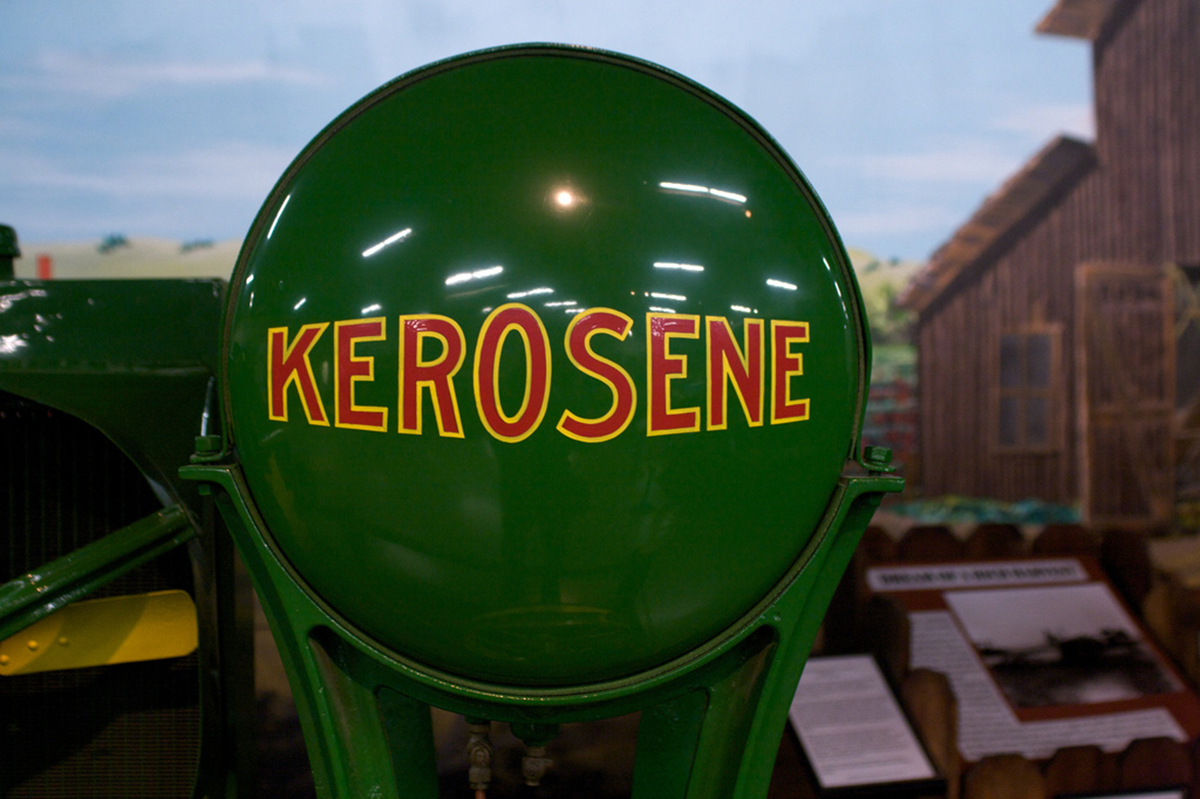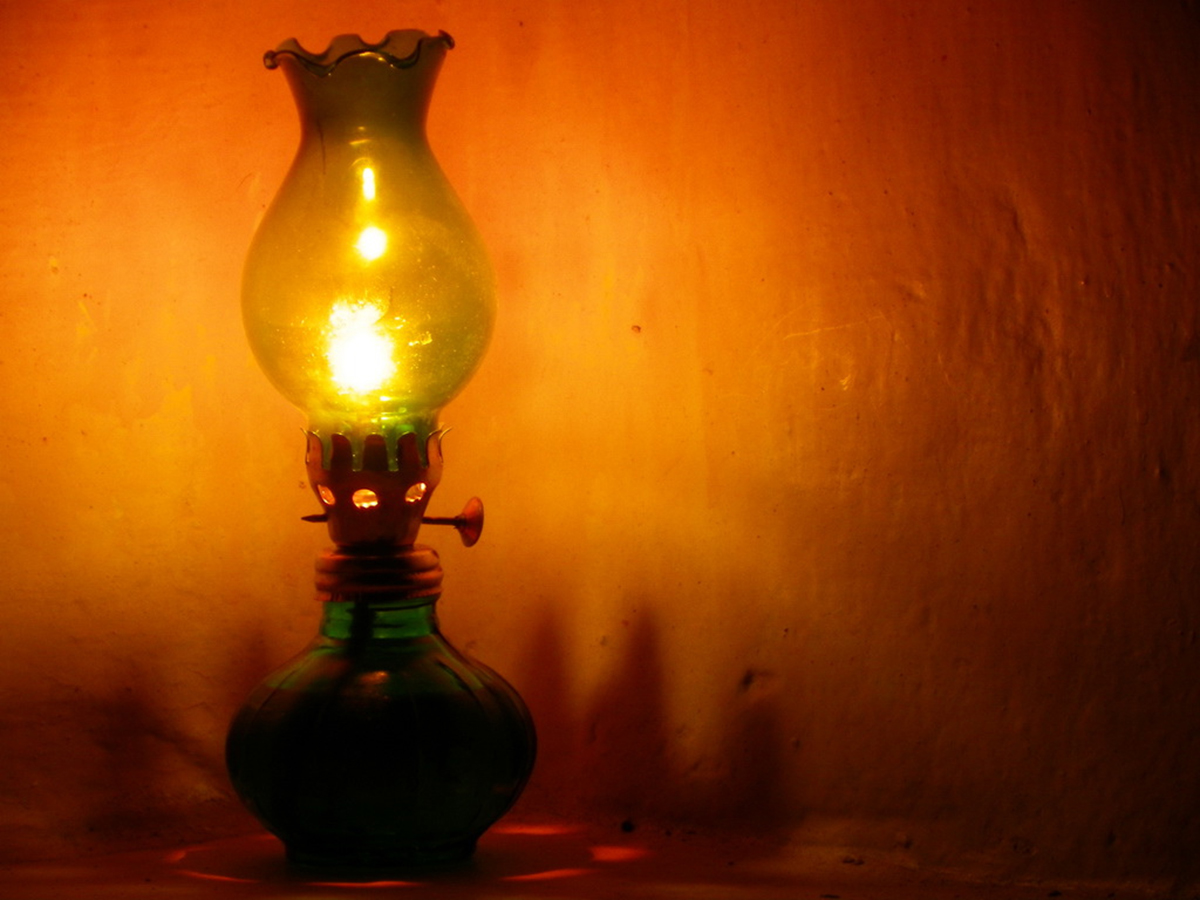"Helena Maglere from Honduras was dying. [...] the cancer had spread to her ovaries and uterus. [...] The case was hopeless. She was given one teaspoon of kerosene on an empty stomach. [...] in 4 weeks she had completely recovered."
"Kerosene heals cancer, even when it has spread."
"Distilled kerosene is not poisonous for us. Many cases witness it heals prostate gland, polio, diabetes, anemia, liver problems, intestinal problems, rheumatism and even various types of cancer."
"Many people across the region are in search of the only real natural source of petroleum in Kruja in Albania, which help in curing cancer."

What?
The above quotes are exactly what they seem to be — rather random selections from a range of websites on which people are claiming that it's possible to cure cancer with oil derivatives. The websites on which this "alternative cancer cure" is being discussed mostly seem to be using the words "petroleum" and "kerosene" interchangeably, probably a result of the fact that this oil derivative has been discussed as a possible cancer cure mainly in South-East European countries such as Serbia and Albania, and similar-sounding terms don't always have the same meanings across languages.
So first things first: what are they actually talking about? Kerosene is a thin oil distilled from petroleum or shale oil, also called coal oil, paraffin in the UK, and more commonly across the English-speaking world, "lamp oil". This stuff is a combustible hydrocarbon liquid that has a range of possible chemical formulas, some of which are also used as jet fuel.[1] It also has a bit of a history as a medicine.
Some websites get more specific about the type of kerosene that can be used for medicinal purposes. According to the folks at Rethinking Cancer [2]: "It is extremely important to use kerosene which has been distilled at temperatures between 100-150' C. At a high temperature of distillation the healing elements are evaporated from this mixture of hydrocarbons; the rest could be harmful to the blood. It is best to use kerosene imported from Poland,as it has these boiling properties."
Kerosene As Medicine?
Kerosene, the same form used in heaters and lamps, has been used to attempt to heal various ailments, ranging from cuts and scrapes and athlete's foot to hemorrhoids and head lice. In animals, kerosene was used to treat hoof infections and parasitic worms. Over the years, it has been used orally, as a topical application, and has even been injected directly into hemorrhoids.[3]
READ Complementary and Alternative Medicine for Cancer Treatment
The websites that talk about using kerosene as a cancer treatment — though they're usually very careful to provide disclaimers noting that they are only providing the information for educational purposes — all mention that it's used orally in this case, usually along with a cube of sugar.
Is Kerosone A Safe Medicine, And Can It Really Cure Cancer?
Kerosene has, it's true, a history of being used for medicinal purposes. It has recently made a comeback among people who favor natural remedies. I've read about people discussing it as a cure for candida, constipation, and arthritis as well as for the ailments previously mentioned. Before asking whether the oral use of kerosene has the potential to cure cancer, we should really ask whether it's safe to ingest at all, for any purpose.
The UK's Health Protection Agency, HPA, notes that exposure to kerosene can cause the following health problems [4]:
- Irritation of the eyes and skin
- Respiratory irritation
- Toxicity
- Dermatitis
- Acute and chronic exposure may lead to "irritability, restlessness, ataxia, drowsiness, convulsions, coma and death", the agency says.

You may be relieved to hear that the HPA, along with peer-reviewed studies, has concluded that kerosene is highly unlikely to be carcinogenic in humans. That is, kerosene may not cure cancer, but it probably doesn't cause it either.
A study that examined the risks of topical injection of kerosene to cure hemorrhoids noted, after having conducted a systematic review of currently available evidence, that "nowadays, it is obvious that kerosene chemical-based components are toxic materials for the human body." It added that medicinal use of kerosene may lead to organ damage and long-term disability.
So, Does Kerosene Cure Cancer?
Look into this question, and there is no doubt that you will come across many, mostly indirect, witness accounts saying that it can. These claims are found on numerous alternative health websites, but making wild claims does not make something true. What is lacking here is actual evidence, evidence obtained through the scientific method and published in a peer-reviewed journal.
The idea that kerosene can be used as a medicine is nothing new, but fortunately we know better now. Cancer quackery is nothing new either, and it is unfortunately still very persistent. People who peddle alternative cancer treatments for which there is no scientific evidence whatsoever that they work — whether for profit or out of sincere belief — are consciously or inadvertently preying on sick people during what might well the most challenging and vulnerable time of their life. By luring cancer patients into alternative remedies, they often steer them away from the treatments that are indeed supported as valid by scientific evidence, primarily chemotherapy. One website I looked at said, for instance: "Petroleum + chemotherapy: this combination is not recommended."
READ Alternative Treatments for Breast Cancer
Whenever someone comes out with bold assertions that a serious illness can be cured with an alternative remedy, a remedy that may itself cause significant health problems, it is important to remember that the burden of proof lies not with those seeking to "debunk" the remedy, but with those making the claim. Proponents of kerosene as a cancer treatment fail sorely on this count. Needless to say, SteadyHealth advises cancer treatments to follow their oncologists' recommendations.
- Photo courtesy of mwichary: www.flickr.com/photos/mwichary/2494312508/
- Photo courtesy of mwichary: www.flickr.com/photos/mwichary/2494312508/
- Photo courtesy of mwichary: www.flickr.com/photos/mwichary/2494312508/
- Photo courtesy of rajeev_27: www.flickr.com/photos/rajeev_27/5569056314/

